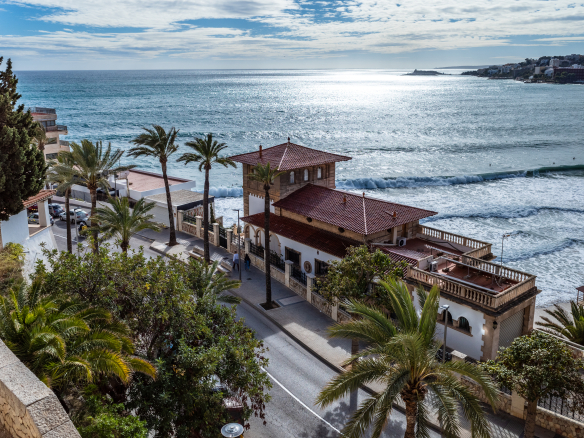Purchasing property in Spain, whether you’re a European citizen or a non-European, can be an exciting investment. Spain’s beautiful coastal regions, appealing climate, and high-quality lifestyle make it a sought-after location for international buyers. Here’s a comprehensive guide to understanding the procedures and requirements for buying property in Spain, tailored to both European Union (EU) citizens and non-EU buyers.
1. Research and Choose Your Property
Before diving into the buying process, it’s crucial to research Spanish property markets, particularly in areas like Costa del Sol, Costa Blanca, and Mallorca, which are popular among foreign investors. Consider consulting local real estate agents, visiting properties in person, and reviewing recent market trends. Million Dollar Villas can assist by connecting buyers to premium coastal properties, helping to find a home that fits your lifestyle and investment goals.
2. Legal Representation and Due Diligence
Hiring a Spanish-speaking lawyer or legal advisor familiar with local real estate laws is highly recommended. They can handle due diligence, including verifying property ownership, checking for any debts on the property, and ensuring that it meets legal requirements.
3. Obtaining an NIE Number
The NIE (Número de Identificación de Extranjero) is a tax identification number required for all foreign buyers. It’s necessary for property transactions and tax purposes. Both EU and non-EU citizens must apply for an NIE at a Spanish police station, Spanish consulate, or through a representative. This process generally takes a few weeks.
4. Opening a Spanish Bank Account
Foreign buyers are advised to open a Spanish bank account to simplify transactions, as local banks are generally preferred for property purchases. Payments such as notary fees, taxes, and utilities will often be made through this account.
5. Securing Financing
European citizens typically find it easier to obtain a mortgage from Spanish banks, often with favorable terms. Non-EU buyers can also secure financing, although the terms may vary depending on the bank’s policies. Generally, Spanish banks finance up to 70-80% of the property’s value for EU citizens and around 50-60% for non-EU buyers.
6. Making an Offer and Signing a Reservation Contract
Once you’ve found a property, you’ll typically make an offer and sign a reservation contract, accompanied by a deposit (usually around 1% of the property’s price). This contract temporarily takes the property off the market while due diligence is completed.
7. Private Purchase Contract and Due Diligence
A private purchase contract (contrato privado de compraventa) is then signed, which includes a more substantial deposit (often around 10%). This contract outlines all the conditions of the sale. At this stage, due diligence is completed, including reviewing property boundaries, permits, and existing debts.
8. Completing the Purchase with the Public Deed
The final purchase step is signing the public deed (escritura pública de compraventa) before a notary. Both the buyer and seller, or their legal representatives, are required to be present. Once signed, the deed must be registered with the Spanish Land Registry (Registro de la Propiedad), officially making you the property owner.
9. Taxes and Fees
Property purchase in Spain involves additional taxes and fees, including:
- Transfer Tax (6-10%) or VAT (10%) for new properties.
- Notary and registration fees (approximately 1-2% of the property price).
- Legal fees (usually 1% of the property price).
For non-EU citizens, purchasing a property valued at over €500,000 may also provide eligibility for Spain’s Golden Visa program, offering residency benefits for buyers and their families.
10. Ongoing Ownership Costs
After purchasing, owners will have ongoing expenses, including property tax, utilities, community fees (if in a complex), and non-resident income tax if the property is rented out or remains vacant.
Additional Considerations for Non-EU Buyers
Non-European buyers should be mindful of any restrictions related to residence permits or visa requirements if they plan to live in Spain part- or full-time. While the Golden Visa offers a path to residency, other requirements may apply depending on the buyer’s nationality.
Conclusion
Buying property in Spain offers a pathway to enjoying the country’s enviable coastal lifestyle, excellent infrastructure, and rich culture. Million Dollar Villas is here to guide you through the process, ensuring you find the perfect coastal property while making your investment experience smooth and secure. Whether you’re from within the EU or from another part of the world, Spain’s real estate market is accessible with the right knowledge and professional assistance.
This guide provides a step-by-step overview of what to expect when buying a property in Spain. If you’re ready to explore Spanish coastal real estate, Million Dollar Villas is here to help you find your dream property.






Join The Discussion